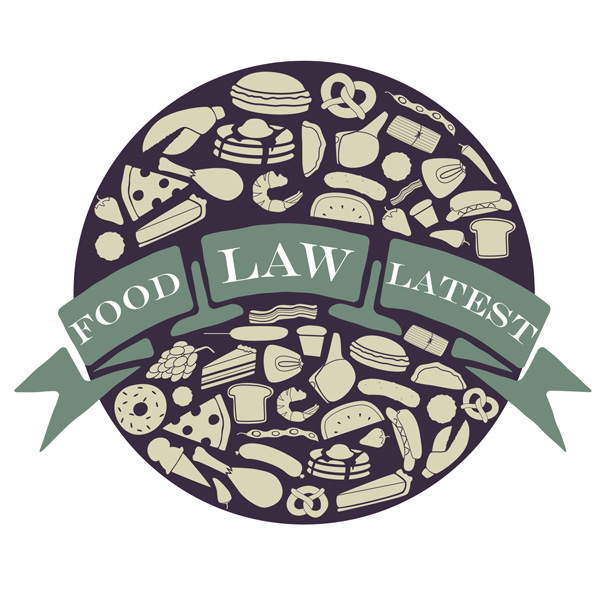Proponiamo alla vostra attenzione un articolo di approfondimento scritto dall’Avv. Cesare Varallo e dal Dott. Simone Volpe (Tecnologo Alimentare) in merito alle conseguenze della Brexit sulla legislazione alimentare per i prodotti europei destinati alla vendita in UK ma anche al viceversa.
The Brexit transition period has officially come to an end at 23.00 GMT, 31 December 2020, marking the completion of the intricate process begun with the historical referendum of 2016. Forty-eight years after it joined the EU, the United Kingdom is no longer a Member state of the European Union and is no longer subject to European Union laws. This comes with some serious consequences for all sectors, and food labelling is no exception.
Directly applicable EU legislation has been mostly converted into British legislation, with some acts being changed by means of statutory instruments. The changes are mainly practical in nature, deriving not from provisions being modified or added, but rather from adjustments of the previous framework, necessary given the different status of the UK and its relationship with the EU.
Also, no changes are required to products which had already been placed on the market, either in the EU or in the UK, before 1 January 2021. They can continue to circulate, and re-labelling is not needed.
On the UK side, a grace period has been provided for with regard to many obligations. In general, it applies till 30 September 2022, with the enforcement of the new rules due to begin – in the UK – only on 1 October 2022. While the above is applicable to EU products intended to be marketed in the UK, the same is not true the other way around. The EU has not allowed for any grace periods, implying that UK companies must comply with the new provisions from January 1st.
Before we dig further into the topic, it is crucial to point out that, for the purpose of the actual article, any reference to the United Kingdom (or its abbreviation, UK) is to be understood as a reference to what is officially referred to as the United Kingdom of Great Britain and Northern Ireland, made up of England, Wales, Scotland, and Northern Ireland (the latter often abbreviated as “NI”). When we talk about “Great Britain” (GB), we mean England, Wales, and Scotland, not considering Northern Ireland. While the changes that will be discussed later apply to products marketed in GB, due to the NI protocol, the previously existing legislative framework still applies to NI, largely unchanged.
The main changes prompted by Brexit are listed below.
FBO Address
One of the most important changes is related to the address of the FBO that shall appear on the labels of food products. As of 1 October 2022, an EU address will no longer be accepted for products marketed in GB. If the FBO is not based in the UK, the address of the importer will be required. In a similar way, due to Article 8 FIC, companies based in GB marketing their products in the EU must include the address of the importer into the EU as of 1 January 2021. For the time being, no changes apply to products imported into or exported from NI.
COOL – Country of Origin Labelling
In terms of country of origin, the basic aspect to keep in mind is that GB is not part of the EU anymore. As a consequence, whenever reference is made in the EU to a product or an ingredient originating from GB, it shall be regarded as having a non-EU origin as of 1 January 2021. Particular provisions will apply in the UK from 1 October 2022 with regard to a number of different products, subjected to mandatory origin labelling.
Organic Labelling
EU operators can sell their products into the UK market as normal till 31 December 2023; no changes apply. This includes the use of the EU organic logo. However, exporting food into GB will require a valid Certificate of Inspection (COI) from 1 July 2021. In a similar way, since the EU has recognised the GB control bodies, British companies can export their organic products into the EU and use the EU organic logo till 31 December 2023, provided that EU legislation is complied with. In this case, a valid COI is already required. Some changes apply to organic food produced in GB and meant to be sold in GB. In this case, the EU organic logo cannot be used anymore, and the statements related to the origin of the products should be changed to “UK” or “non-UK Agriculture”.
Geographical Indications
 The UK has set up its own scheme of GIs, which has been in place since January 1st. It includes three categories of products (the same as the ones in the EU scheme), with original symbols. All of the products that were protected under the EU scheme (either British or European) on 31 December 2020 are protected under the current scheme, too. Producers will be able to use the regular EU logo for food sold in the UK, even for products registered after 1 January 2021. The new scheme will be mandatory only for British products sold in GB and not registered under the EU scheme. Once again nothing changes in NI.
The UK has set up its own scheme of GIs, which has been in place since January 1st. It includes three categories of products (the same as the ones in the EU scheme), with original symbols. All of the products that were protected under the EU scheme (either British or European) on 31 December 2020 are protected under the current scheme, too. Producers will be able to use the regular EU logo for food sold in the UK, even for products registered after 1 January 2021. The new scheme will be mandatory only for British products sold in GB and not registered under the EU scheme. Once again nothing changes in NI.
Health and Identification Marks
Since the UK is no longer a Member state of the EU, the “EC” suffix must be removed from health and identification marks of products of animal origin (POAO) produced in GB. The new marks will display the name “United Kingdom”, or the abbreviations “GB” or “UK”. Having regard to POAO produced in NI, they will still carry the “EC” suffix, with “United Kingdom (Northern Ireland)”, which could be abbreviated as “UK(NI)”, as country name. Existing stocks of the old marks can be used till 30 September 2022.
Import/Export of Products of Animal Origin, Plants and Vegetable Products and Similar Products
It is worth mentioning that, besides labelling changes, rules will change also with regard to the bureaucracy and the documents needed to trade products of animal origin, as well as plants and plant products and similar goods. For products imported into GB from the EU, those changes will be implemented in subsequent phases, mainly starting from April 2021, with the subsequent step in July 2021. For selected high-risk products some measures are already in place as of January 2021. Under the new rules, additional documentation will typically be required, and border checks will be possible.
Resources:
https://www.gov.uk/guidance/importing-and-exporting-organic-food
https://www.gov.uk/guidance/organic-food-labelling-rules
https://www.gov.uk/guidance/food-standards-labelling-durability-and-composition
https://www.gov.uk/guidance/food-labelling-giving-food-information-to-consumers
https://assets.publishing.service.gov.uk/government/uploads/system/uploads/attachment_data/file/949579/December_BordersOPModel__2_.pdf
https://www.food.gov.uk/business-guidance/guidance-on-health-and-identification-marks-that-apply-from-1-january-2021
Written by Cesare Varallo and Simone Volpe


